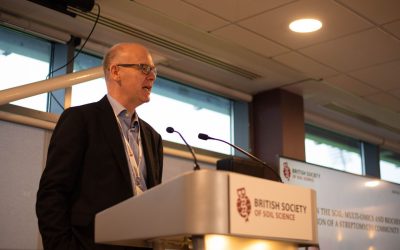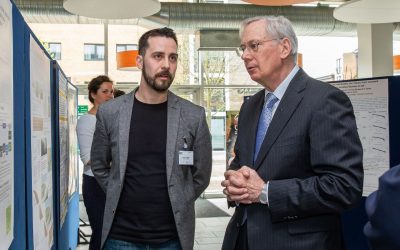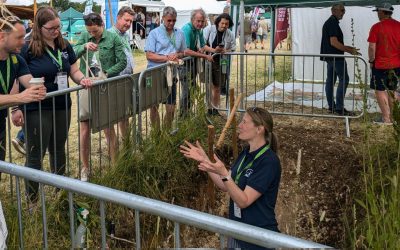This August, scientists from across the globe are meeting in Glasgow at the World Congress of Soil Science (WCSS). I am an early career researcher and whole-heartedly believe it is an exciting time to be involved in soil science because of the growing attention it is getting and the far-reaching impact it can have. The Congress theme, ‘Soil Science – crossing boundaries, changing society’, is highly appropriate for where we find ourselves, and I’m glad to say that ADAS, my employer, and a long-standing supporter of the British Society of Soil Science (BSSS), is sponsoring the event. Soils have the potential to drive change in society for better or for worse; managed sustainably they are the bedrock of our environment, neglect them and we are effectively pulling the plug on our own life support system. Soils cross the boundaries of space and time; desertification will not stop at a country’s border and the secrets of our past are entombed beneath our feet in the careful possession of soil until we find them again.
It feels like more and more people are beginning to understand the importance of soil, you see it occasionally popping up in the national news, or in a viral video about the amount of life in a teaspoon of soil. Soil has claimed its rightful place on the agenda, and this represents the opportunity to do meaningful and important work with far reaching consequences. This is in no small part thanks to BSSS members continuing to shout about it. I’m very grateful to all soil scientists, past and present, for laying this groundwork.
The rising profile of soil is getting attention for good reason. We are now sandwiched in a time between COP26 and the World Congress of Soil Science, both of which help sound the climate emergency alarm and shine a light on the value of nature-based solutions. As a result of these events the prevalence of soil science is accelerating. It’s not hard to find a way to discuss soil in the context of most of the UN Sustainable Development Goals: responsible production? – starts with soil; Life on land? – entirely reliant on soil; Clean water? – soil is part of a land-based filtering system; Zero hunger? – 95 % of our food comes from soil.
However, we must do what all soil scientists do best: stay grounded. The Society produced an excellent soil carbon note outlining that carbon sequestration in soil is not our ticket out of the climate crisis. The spotlight of recent years has found, and is returning to, the soil science community with increasing frequency. Whenever we get the opportunity we must beat the drum without hyperbole – which should be easy, there’s so much great stuff to talk about when it comes to soil without having to exaggerate, all of which will be on display at the world congress. The programme of the congress displays a fantastic scientific agenda and a superb policy one. This unification of policy and scientific evidence is key to creating meaningful change. The congress will be a wonderful forum to develop that messaging. I hope I get an opportunity to discuss it further with you in Glasgow whether you’re an established soil scientist or a fellow early career researcher.
The views expressed in this blog do not necessarily reflect the views of the British Society of Soil Science.





